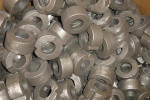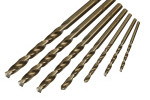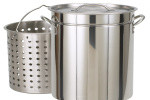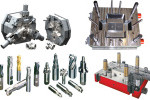Home > Industry/Domain > Materials science
Materials science
The the study of matter and their applications in various areas of science and engineering.
8Categories 22436Terms
Add a new termContributors in Materials science
Materials science > Metallurgy 

Low-alloy Steels
Materials science; Metallurgy
Their carbon content is usually below 0.25 percent and often below 0.15 percent. Typical alloys include nickel, chromium, molybdenum, manganese, and silicon, which add strength at ...

Cobalt Steel
Materials science; Metallurgy
Cobalt Steel is very similar to High Speed Steel. Its identifier is M40CO or M42. Most drills made of Cobalt have a brownish gold tint and are marked with their identifier. ...

Stainless Steels
Materials science; Metallurgy
Stainless steels generally contain between 10-20% chromium as the main alloying element and are valued for high corrosion resistance. With over 11% chromium, steel is about 200 ...

Tool Steels
Materials science; Metallurgy
Tool steels contain tungsten, molybdenum, cobalt and vanadium in varying quantities to increase heat resistance and durability, making them ideal for cutting and drilling ...

Broaching
Materials science; Metallurgy
The use of a cutting tool with a series of teeth that is used to change the shape or dimensions of a hole. Broaching can also be used to remove material from a workpiece surface.

Chipping
Materials science; Metallurgy
An unwanted piece of metal that is removed from a workpiece. Chips are formed when a tool cuts or grinds metal. This type of process is known as chipping.

Pressing
Materials science; Metallurgy
Pressing is the process in which we shape materials or substance by compression forces.This type of process is used in materials to reduce flaws in materials and to improve ...
Sub-categories

- Corrosion engineering (17347)
- Dynamic testing (1)
- Electromechanical (0)
- Electromechanical testing (0)
- Impact testing (45)
- Magnetics (3118)
- Material physics (1772)
- Metallurgy (10306)
